2020 Toyota Camry Repair, Service & Tires
Get Started
Complete Auto Care for Your 2020 Toyota Camry
-
TIRES FOR YOUR 2020 Toyota Camry View Tire Info GET TIRE PRICING
-
REPAIR FOR YOUR 2020 Toyota Camry View Repair Info SCHEDULE REPAIR
-
MAINTENANCE FOR YOUR 2020 Toyota Camry View Maintenance Info SCHEDULE MAINTENANCE
-
OFFERS FOR YOUR 2020 Toyota Camry Limited Time Tire Offers VIEW ALL COUPONS
2020 Toyota Camry Tires
Recommended Tires | Tire Information
2020 Toyota Camry Tires Sizes, Speed Ratings, and Inflation
Not sure about your 2020 Toyota Camry tire size? Use the following chart to find information on tire size, speed rating, and inflation.
| Trim Level | Speed Rating | Inflation in PSI F/R | Tire Size |
|---|---|---|---|
| 2020 Toyota Camry SE* | V | 35 PSI/35 PSI | 235/45R18 |
| 2020 Toyota Camry SE* | V | 35 PSI/35 PSI | 235/45R18 |
| 2020 Toyota Camry SE* | V | 35 PSI/35 PSI | 235/45R18 |
| 2020 Toyota Camry SE* | V | 35 PSI/35 PSI | 235/45R18 |
| 2020 Toyota Camry SE* | V | 35 PSI/35 PSI | 235/45R18 |
| 2020 Toyota Camry SE* | V | 35 PSI/35 PSI | 235/45R18 |
| 2020 Toyota Camry SE* | V | 36 PSI/36 PSI | 235/45R18 |
| 2020 Toyota Camry SE* | V | 36 PSI/36 PSI | 235/45R18 |
| 2020 Toyota Camry SE* | V | 36 PSI/36 PSI | 235/45R18 |
| 2020 Toyota Camry SE* | V | 36 PSI/36 PSI | 235/45R18 |
| 2020 Toyota Camry SE* | V | 36 PSI/36 PSI | 235/45R18 |
| 2020 Toyota Camry SE* | V | 36 PSI/36 PSI | 235/45R18 |
| 2020 Toyota Camry Hybrid SE* | V | 35 PSI/35 PSI | 235/45R18 |
| 2020 Toyota Camry Hybrid SE* | V | 35 PSI/35 PSI | 235/45R18 |
| 2020 Toyota Camry Hybrid SE* | V | 35 PSI/35 PSI | 235/45R18 |
| 2020 Toyota Camry Hybrid SE* | V | 35 PSI/35 PSI | 235/45R18 |
| 2020 Toyota Camry Hybrid SE* | V | 35 PSI/35 PSI | 235/45R18 |
| 2020 Toyota Camry Hybrid SE* | V | 35 PSI/35 PSI | 235/45R18 |
| 2020 Toyota Camry XSE* | V | 36 PSI/36 PSI | 235/40R19 |
| 2020 Toyota Camry XSE* | V | 36 PSI/36 PSI | 235/40R19 |
| 2020 Toyota Camry XSE* | V | 36 PSI/36 PSI | 235/40R19 |
| 2020 Toyota Camry XSE* | V | 36 PSI/36 PSI | 235/40R19 |
| 2020 Toyota Camry XSE* | V | 36 PSI/36 PSI | 235/40R19 |
| 2020 Toyota Camry XSE* | V | 36 PSI/36 PSI | 235/40R19 |
| 2020 Toyota Camry XSE* | V | 35 PSI/35 PSI | 235/40R19 |
| 2020 Toyota Camry XSE* | V | 35 PSI/35 PSI | 235/40R19 |
| 2020 Toyota Camry XSE* | V | 35 PSI/35 PSI | 235/40R19 |
| 2020 Toyota Camry XSE* | V | 35 PSI/35 PSI | 235/40R19 |
| 2020 Toyota Camry XSE* | V | 35 PSI/35 PSI | 235/40R19 |
| 2020 Toyota Camry XSE* | V | 35 PSI/35 PSI | 235/40R19 |
| 2020 Toyota Camry Hybrid XLE* | V | 35 PSI/35 PSI | 235/45R18 |
| 2020 Toyota Camry Hybrid XLE* | V | 35 PSI/35 PSI | 235/45R18 |
| 2020 Toyota Camry Hybrid XLE* | V | 35 PSI/35 PSI | 235/45R18 |
| 2020 Toyota Camry Hybrid XLE* | V | 35 PSI/35 PSI | 235/45R18 |
| 2020 Toyota Camry Hybrid XLE* | V | 35 PSI/35 PSI | 235/45R18 |
| 2020 Toyota Camry Hybrid XLE* | V | 35 PSI/35 PSI | 235/45R18 |
| 2020 Toyota Camry L* | H | 35 PSI/35 PSI | 205/65R16 |
| 2020 Toyota Camry L* | H | 35 PSI/35 PSI | 205/65R16 |
| 2020 Toyota Camry L* | H | 35 PSI/35 PSI | 205/65R16 |
| 2020 Toyota Camry L* | H | 35 PSI/35 PSI | 205/65R16 |
| 2020 Toyota Camry L* | H | 35 PSI/35 PSI | 205/65R16 |
| 2020 Toyota Camry L* | H | 35 PSI/35 PSI | 205/65R16 |
| 2020 Toyota Camry TRD* | V | 35 PSI/35 PSI | 235/40R19 |
| 2020 Toyota Camry TRD* | V | 35 PSI/35 PSI | 235/40R19 |
| 2020 Toyota Camry TRD* | V | 35 PSI/35 PSI | 235/40R19 |
| 2020 Toyota Camry TRD* | V | 35 PSI/35 PSI | 235/40R19 |
| 2020 Toyota Camry TRD* | V | 35 PSI/35 PSI | 235/40R19 |
| 2020 Toyota Camry TRD* | V | 35 PSI/35 PSI | 235/40R19 |
| 2020 Toyota Camry SE Nightshade* | V | 36 PSI/36 PSI | 235/45R18 |
| 2020 Toyota Camry SE Nightshade* | V | 36 PSI/36 PSI | 235/45R18 |
| 2020 Toyota Camry SE Nightshade* | V | 36 PSI/36 PSI | 235/45R18 |
| 2020 Toyota Camry SE Nightshade* | V | 36 PSI/36 PSI | 235/45R18 |
| 2020 Toyota Camry SE Nightshade* | V | 36 PSI/36 PSI | 235/45R18 |
| 2020 Toyota Camry SE Nightshade* | V | 36 PSI/36 PSI | 235/45R18 |
| 2020 Toyota Camry SE Nightshade* | V | 35 PSI/35 PSI | 235/45R18 |
| 2020 Toyota Camry SE Nightshade* | V | 35 PSI/35 PSI | 235/45R18 |
| 2020 Toyota Camry SE Nightshade* | V | 35 PSI/35 PSI | 235/45R18 |
| 2020 Toyota Camry SE Nightshade* | V | 35 PSI/35 PSI | 235/45R18 |
| 2020 Toyota Camry SE Nightshade* | V | 35 PSI/35 PSI | 235/45R18 |
| 2020 Toyota Camry SE Nightshade* | V | 35 PSI/35 PSI | 235/45R18 |
| 2020 Toyota Camry Hybrid LE* | H | 35 PSI/35 PSI | 205/65R16 |
| 2020 Toyota Camry Hybrid LE* | H | 35 PSI/35 PSI | 205/65R16 |
| 2020 Toyota Camry Hybrid LE* | H | 35 PSI/35 PSI | 205/65R16 |
| 2020 Toyota Camry Hybrid LE* | H | 35 PSI/35 PSI | 205/65R16 |
| 2020 Toyota Camry Hybrid LE* | H | 35 PSI/35 PSI | 205/65R16 |
| 2020 Toyota Camry Hybrid LE* | H | 35 PSI/35 PSI | 205/65R16 |
| 2020 Toyota Camry LE* | V | 35 PSI/35 PSI | 215/55R17 |
| 2020 Toyota Camry LE* | V | 35 PSI/35 PSI | 215/55R17 |
| 2020 Toyota Camry LE* | V | 35 PSI/35 PSI | 215/55R17 |
| 2020 Toyota Camry LE* | V | 35 PSI/35 PSI | 215/55R17 |
| 2020 Toyota Camry LE* | V | 35 PSI/35 PSI | 215/55R17 |
| 2020 Toyota Camry LE* | V | 35 PSI/35 PSI | 215/55R17 |
| 2020 Toyota Camry LE* | V | 36 PSI/36 PSI | 215/55R17 |
| 2020 Toyota Camry LE* | V | 36 PSI/36 PSI | 215/55R17 |
| 2020 Toyota Camry LE* | V | 36 PSI/36 PSI | 215/55R17 |
| 2020 Toyota Camry LE* | V | 36 PSI/36 PSI | 215/55R17 |
| 2020 Toyota Camry LE* | V | 36 PSI/36 PSI | 215/55R17 |
| 2020 Toyota Camry LE* | V | 36 PSI/36 PSI | 215/55R17 |
| 2020 Toyota Camry XLE* | V | 36 PSI/36 PSI | 235/45R18 |
| 2020 Toyota Camry XLE* | V | 36 PSI/36 PSI | 235/45R18 |
| 2020 Toyota Camry XLE* | V | 36 PSI/36 PSI | 235/45R18 |
| 2020 Toyota Camry XLE* | V | 36 PSI/36 PSI | 235/45R18 |
| 2020 Toyota Camry XLE* | V | 36 PSI/36 PSI | 235/45R18 |
| 2020 Toyota Camry XLE* | V | 36 PSI/36 PSI | 235/45R18 |
| 2020 Toyota Camry XLE* | V | 35 PSI/35 PSI | 235/45R18 |
| 2020 Toyota Camry XLE* | V | 35 PSI/35 PSI | 235/45R18 |
| 2020 Toyota Camry XLE* | V | 35 PSI/35 PSI | 235/45R18 |
| 2020 Toyota Camry XLE* | V | 35 PSI/35 PSI | 235/45R18 |
| 2020 Toyota Camry XLE* | V | 35 PSI/35 PSI | 235/45R18 |
| 2020 Toyota Camry XLE* | V | 35 PSI/35 PSI | 235/45R18 |
|
2020 Toyota Camry SE* Speed Rating: V Inflation F/R: 35 PSI/35 PSI |
|
2020 Toyota Camry SE* Speed Rating: V Inflation F/R: 35 PSI/35 PSI |
|
2020 Toyota Camry SE* Speed Rating: V Inflation F/R: 35 PSI/35 PSI |
|
2020 Toyota Camry SE* Speed Rating: V Inflation F/R: 35 PSI/35 PSI |
|
2020 Toyota Camry SE* Speed Rating: V Inflation F/R: 35 PSI/35 PSI |
|
2020 Toyota Camry SE* Speed Rating: V Inflation F/R: 35 PSI/35 PSI |
|
2020 Toyota Camry SE* Speed Rating: V Inflation F/R: 36 PSI/36 PSI |
|
2020 Toyota Camry SE* Speed Rating: V Inflation F/R: 36 PSI/36 PSI |
|
2020 Toyota Camry SE* Speed Rating: V Inflation F/R: 36 PSI/36 PSI |
|
2020 Toyota Camry SE* Speed Rating: V Inflation F/R: 36 PSI/36 PSI |
|
2020 Toyota Camry SE* Speed Rating: V Inflation F/R: 36 PSI/36 PSI |
|
2020 Toyota Camry SE* Speed Rating: V Inflation F/R: 36 PSI/36 PSI |
|
2020 Toyota Camry Hybrid SE* Speed Rating: V Inflation F/R: 35 PSI/35 PSI |
|
2020 Toyota Camry Hybrid SE* Speed Rating: V Inflation F/R: 35 PSI/35 PSI |
|
2020 Toyota Camry Hybrid SE* Speed Rating: V Inflation F/R: 35 PSI/35 PSI |
|
2020 Toyota Camry Hybrid SE* Speed Rating: V Inflation F/R: 35 PSI/35 PSI |
|
2020 Toyota Camry Hybrid SE* Speed Rating: V Inflation F/R: 35 PSI/35 PSI |
|
2020 Toyota Camry Hybrid SE* Speed Rating: V Inflation F/R: 35 PSI/35 PSI |
|
2020 Toyota Camry XSE* Speed Rating: V Inflation F/R: 36 PSI/36 PSI |
|
2020 Toyota Camry XSE* Speed Rating: V Inflation F/R: 36 PSI/36 PSI |
|
2020 Toyota Camry XSE* Speed Rating: V Inflation F/R: 36 PSI/36 PSI |
|
2020 Toyota Camry XSE* Speed Rating: V Inflation F/R: 36 PSI/36 PSI |
|
2020 Toyota Camry XSE* Speed Rating: V Inflation F/R: 36 PSI/36 PSI |
|
2020 Toyota Camry XSE* Speed Rating: V Inflation F/R: 36 PSI/36 PSI |
|
2020 Toyota Camry XSE* Speed Rating: V Inflation F/R: 35 PSI/35 PSI |
|
2020 Toyota Camry XSE* Speed Rating: V Inflation F/R: 35 PSI/35 PSI |
|
2020 Toyota Camry XSE* Speed Rating: V Inflation F/R: 35 PSI/35 PSI |
|
2020 Toyota Camry XSE* Speed Rating: V Inflation F/R: 35 PSI/35 PSI |
|
2020 Toyota Camry XSE* Speed Rating: V Inflation F/R: 35 PSI/35 PSI |
|
2020 Toyota Camry XSE* Speed Rating: V Inflation F/R: 35 PSI/35 PSI |
|
2020 Toyota Camry Hybrid XLE* Speed Rating: V Inflation F/R: 35 PSI/35 PSI |
|
2020 Toyota Camry Hybrid XLE* Speed Rating: V Inflation F/R: 35 PSI/35 PSI |
|
2020 Toyota Camry Hybrid XLE* Speed Rating: V Inflation F/R: 35 PSI/35 PSI |
|
2020 Toyota Camry Hybrid XLE* Speed Rating: V Inflation F/R: 35 PSI/35 PSI |
|
2020 Toyota Camry Hybrid XLE* Speed Rating: V Inflation F/R: 35 PSI/35 PSI |
|
2020 Toyota Camry Hybrid XLE* Speed Rating: V Inflation F/R: 35 PSI/35 PSI |
|
2020 Toyota Camry L* Speed Rating: H Inflation F/R: 35 PSI/35 PSI |
|
2020 Toyota Camry L* Speed Rating: H Inflation F/R: 35 PSI/35 PSI |
|
2020 Toyota Camry L* Speed Rating: H Inflation F/R: 35 PSI/35 PSI |
|
2020 Toyota Camry L* Speed Rating: H Inflation F/R: 35 PSI/35 PSI |
|
2020 Toyota Camry L* Speed Rating: H Inflation F/R: 35 PSI/35 PSI |
|
2020 Toyota Camry L* Speed Rating: H Inflation F/R: 35 PSI/35 PSI |
|
2020 Toyota Camry TRD* Speed Rating: V Inflation F/R: 35 PSI/35 PSI |
|
2020 Toyota Camry TRD* Speed Rating: V Inflation F/R: 35 PSI/35 PSI |
|
2020 Toyota Camry TRD* Speed Rating: V Inflation F/R: 35 PSI/35 PSI |
|
2020 Toyota Camry TRD* Speed Rating: V Inflation F/R: 35 PSI/35 PSI |
|
2020 Toyota Camry TRD* Speed Rating: V Inflation F/R: 35 PSI/35 PSI |
|
2020 Toyota Camry TRD* Speed Rating: V Inflation F/R: 35 PSI/35 PSI |
|
2020 Toyota Camry SE Nightshade* Speed Rating: V Inflation F/R: 36 PSI/36 PSI |
|
2020 Toyota Camry SE Nightshade* Speed Rating: V Inflation F/R: 36 PSI/36 PSI |
|
2020 Toyota Camry SE Nightshade* Speed Rating: V Inflation F/R: 36 PSI/36 PSI |
|
2020 Toyota Camry SE Nightshade* Speed Rating: V Inflation F/R: 36 PSI/36 PSI |
|
2020 Toyota Camry SE Nightshade* Speed Rating: V Inflation F/R: 36 PSI/36 PSI |
|
2020 Toyota Camry SE Nightshade* Speed Rating: V Inflation F/R: 36 PSI/36 PSI |
|
2020 Toyota Camry SE Nightshade* Speed Rating: V Inflation F/R: 35 PSI/35 PSI |
|
2020 Toyota Camry SE Nightshade* Speed Rating: V Inflation F/R: 35 PSI/35 PSI |
|
2020 Toyota Camry SE Nightshade* Speed Rating: V Inflation F/R: 35 PSI/35 PSI |
|
2020 Toyota Camry SE Nightshade* Speed Rating: V Inflation F/R: 35 PSI/35 PSI |
|
2020 Toyota Camry SE Nightshade* Speed Rating: V Inflation F/R: 35 PSI/35 PSI |
|
2020 Toyota Camry SE Nightshade* Speed Rating: V Inflation F/R: 35 PSI/35 PSI |
|
2020 Toyota Camry Hybrid LE* Speed Rating: H Inflation F/R: 35 PSI/35 PSI |
|
2020 Toyota Camry Hybrid LE* Speed Rating: H Inflation F/R: 35 PSI/35 PSI |
|
2020 Toyota Camry Hybrid LE* Speed Rating: H Inflation F/R: 35 PSI/35 PSI |
|
2020 Toyota Camry Hybrid LE* Speed Rating: H Inflation F/R: 35 PSI/35 PSI |
|
2020 Toyota Camry Hybrid LE* Speed Rating: H Inflation F/R: 35 PSI/35 PSI |
|
2020 Toyota Camry Hybrid LE* Speed Rating: H Inflation F/R: 35 PSI/35 PSI |
|
2020 Toyota Camry LE* Speed Rating: V Inflation F/R: 35 PSI/35 PSI |
|
2020 Toyota Camry LE* Speed Rating: V Inflation F/R: 35 PSI/35 PSI |
|
2020 Toyota Camry LE* Speed Rating: V Inflation F/R: 35 PSI/35 PSI |
|
2020 Toyota Camry LE* Speed Rating: V Inflation F/R: 35 PSI/35 PSI |
|
2020 Toyota Camry LE* Speed Rating: V Inflation F/R: 35 PSI/35 PSI |
|
2020 Toyota Camry LE* Speed Rating: V Inflation F/R: 35 PSI/35 PSI |
|
2020 Toyota Camry LE* Speed Rating: V Inflation F/R: 36 PSI/36 PSI |
|
2020 Toyota Camry LE* Speed Rating: V Inflation F/R: 36 PSI/36 PSI |
|
2020 Toyota Camry LE* Speed Rating: V Inflation F/R: 36 PSI/36 PSI |
|
2020 Toyota Camry LE* Speed Rating: V Inflation F/R: 36 PSI/36 PSI |
|
2020 Toyota Camry LE* Speed Rating: V Inflation F/R: 36 PSI/36 PSI |
|
2020 Toyota Camry LE* Speed Rating: V Inflation F/R: 36 PSI/36 PSI |
|
2020 Toyota Camry XLE* Speed Rating: V Inflation F/R: 36 PSI/36 PSI |
|
2020 Toyota Camry XLE* Speed Rating: V Inflation F/R: 36 PSI/36 PSI |
|
2020 Toyota Camry XLE* Speed Rating: V Inflation F/R: 36 PSI/36 PSI |
|
2020 Toyota Camry XLE* Speed Rating: V Inflation F/R: 36 PSI/36 PSI |
|
2020 Toyota Camry XLE* Speed Rating: V Inflation F/R: 36 PSI/36 PSI |
|
2020 Toyota Camry XLE* Speed Rating: V Inflation F/R: 36 PSI/36 PSI |
|
2020 Toyota Camry XLE* Speed Rating: V Inflation F/R: 35 PSI/35 PSI |
|
2020 Toyota Camry XLE* Speed Rating: V Inflation F/R: 35 PSI/35 PSI |
|
2020 Toyota Camry XLE* Speed Rating: V Inflation F/R: 35 PSI/35 PSI |
|
2020 Toyota Camry XLE* Speed Rating: V Inflation F/R: 35 PSI/35 PSI |
|
2020 Toyota Camry XLE* Speed Rating: V Inflation F/R: 35 PSI/35 PSI |
|
2020 Toyota Camry XLE* Speed Rating: V Inflation F/R: 35 PSI/35 PSI |
* Note: these models have different tire sizes depending on vehicle options.
Recommended Tires for Your 2020 Toyota Camry
What tires are best for a 2020 Toyota Camry? Check out the following tire brands and types.
 Ecopia EP422 Plus
Ecopia EP422 Plus
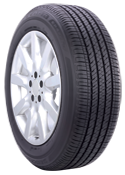
- Platinum Pact Limited Warranty
- All-Season
- Performance
 Potenza RE97AS
Potenza RE97AS
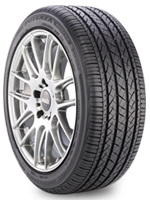
- Platinum Pact Limited Warranty
- All-Season
- Performance
 Potenza Sport
Potenza Sport
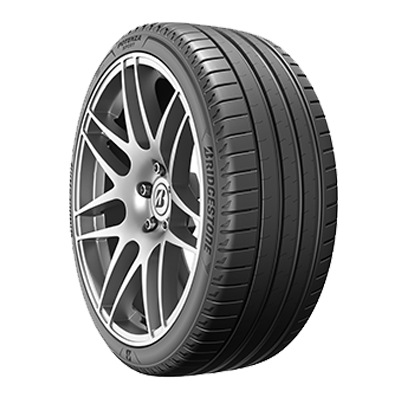
- Platinum Pact Limited Warranty
- Summer
- Performance
 Potenza Sport AS
Potenza Sport AS
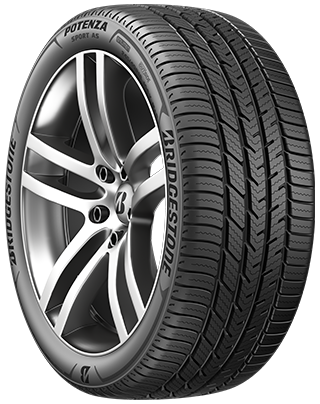
- Platinum Pact Limited Warranty
- All-Season
- Performance
 Turanza EL440
Turanza EL440
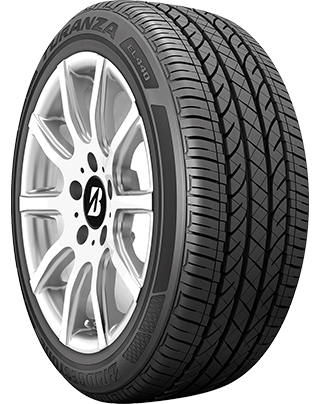
- No warranty
- All-Season
- Performance
 Turanza ER33
Turanza ER33
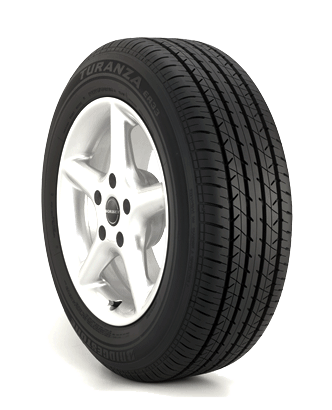
- Platinum Pact Limited Warranty
- Summer
- Performance
 Turanza QUIETTRACK
Turanza QUIETTRACK
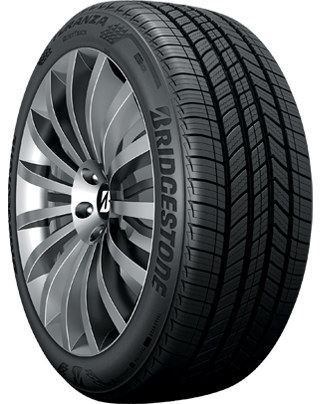
- No warranty
- All-Season
- Performance
 Turanza T005A
Turanza T005A
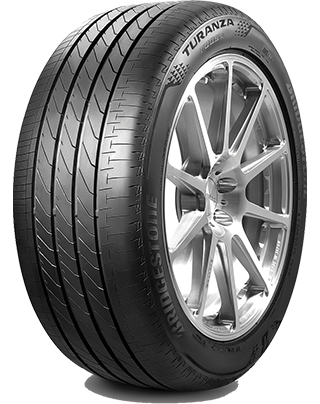
- No warranty
- Summer
- Performance
 Blizzak LM005
Blizzak LM005
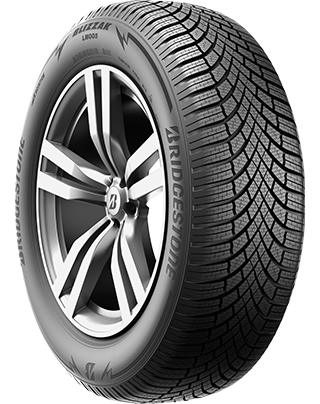
- Platinum Pact Limited Warranty
- Winter
- Winter
 WEATHERPEAK
WEATHERPEAK
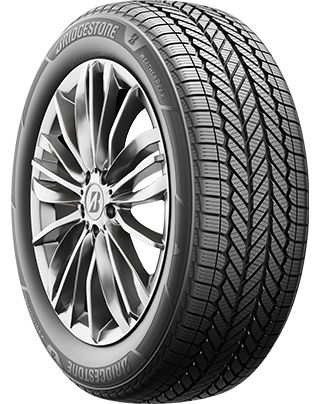
- Platinum Pact Limited Warranty
- All-Season
- Passenger Tires
 Potenza RE050A
Potenza RE050A
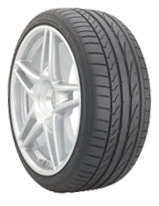
- Platinum Pact Limited Warranty
- Summer
- Performance
 Potenza S001
Potenza S001
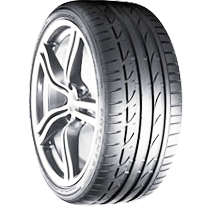
- Platinum Pact Limited Warranty
- Summer
- Performance
 Blizzak WS90
Blizzak WS90
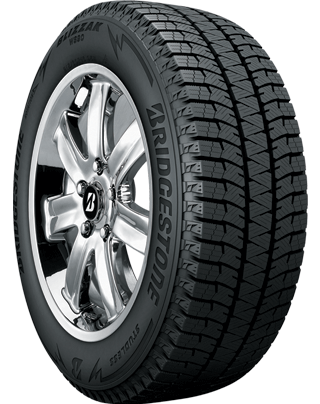
- No warranty
- Winter
- Winter
 DriveGuard Plus
DriveGuard Plus
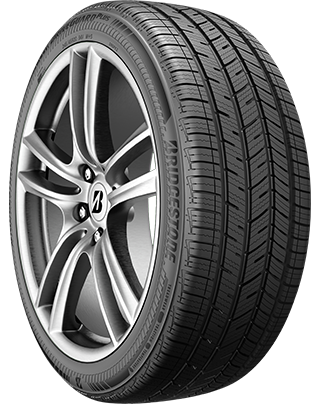
- Platinum Pact Limited Warranty
- All-Season
- Performance
 Turanza EL400-02
Turanza EL400-02
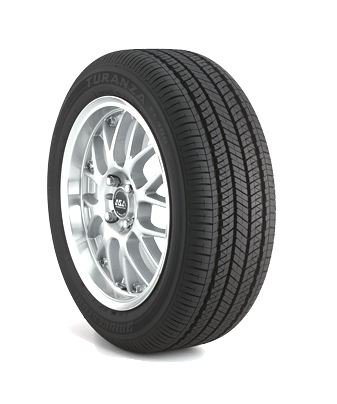
- No warranty
- All-Season
- Performance
 Turanza T005
Turanza T005
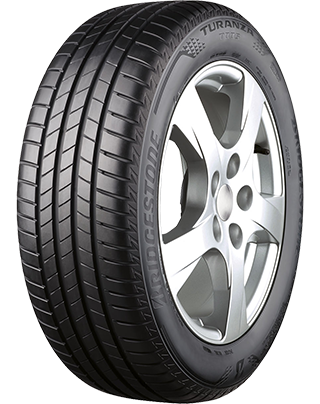
- No warranty
- Summer
- Performance
 Turanza EV
Turanza EV
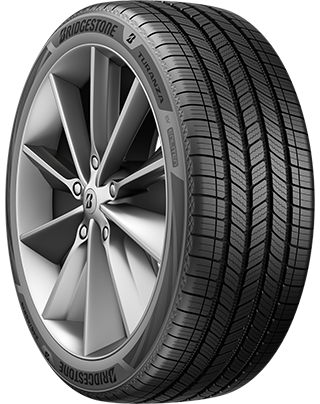
- Platinum Pact Limited Warranty
- All-Season
- Performance
 Turanza LS100
Turanza LS100
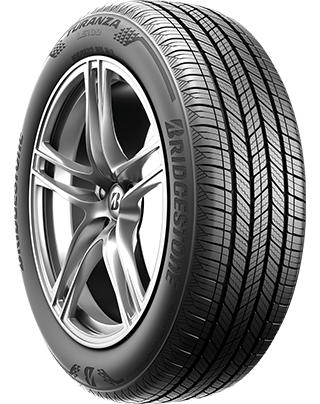
- Platinum Pact Limited Warranty
- All-Season
- Performance
 ALL SEASON
ALL SEASON

- No warranty
- All-Season
- Passenger Tires
 Firehawk AS V2
Firehawk AS V2
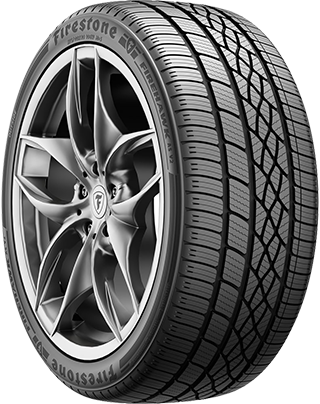
- No warranty
- All-Season
- Performance
 Firehawk Indy 500
Firehawk Indy 500
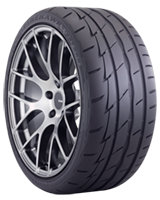
- Gold Pledge Limited Warranty
- Summer
- Performance
 WEATHERGRIP
WEATHERGRIP
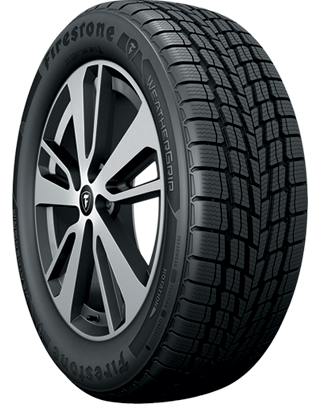
- No warranty
- All-Season
- Passenger Tires
 Affinity Touring S4 FF
Affinity Touring S4 FF
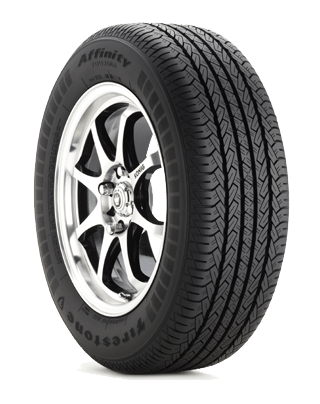
- Gold Pledge Limited Warranty
- All-Season
- Passenger Tires
 FT140
FT140
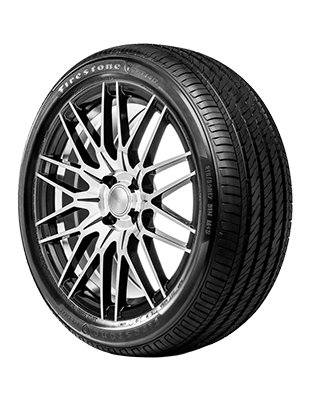
- No warranty
- All-Season
- Passenger Tires
 Winterforce 2
Winterforce 2
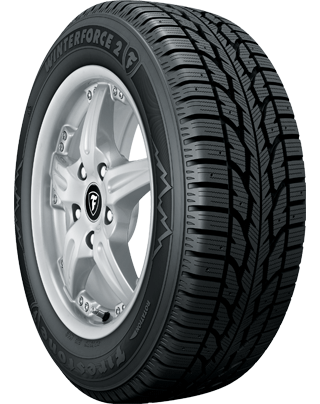
- No warranty
- Winter
- Winter

- No warranty
- All-Season
- Performance

- No warranty
- All-Season
- Passenger Tires

- No warranty
- All-Season
- Passenger Tires
 Extensa A/S II
Extensa A/S II

- No warranty
- All-Season
- Passenger Tires
 PROXES Sport
PROXES Sport
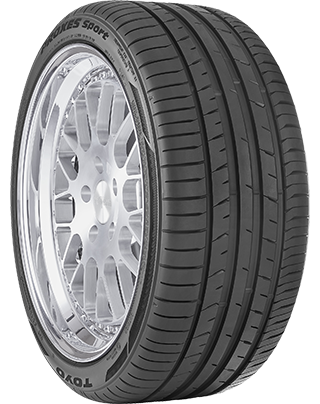
- No warranty
- Summer
- Performance
 PROXES Sport A/S
PROXES Sport A/S
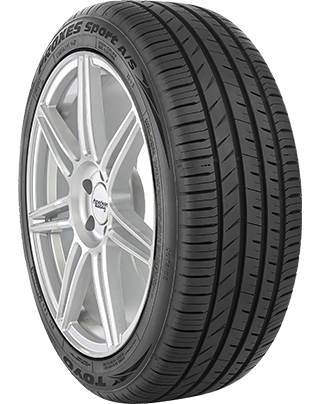
- No warranty
- All-Season
- Performance
About 2020 Toyota Camry Tires
Apart from finding the right tire size, there are a couple of other factors to consider when buying Toyota Camry tires like which tire brands you like most and where you drive. Think about where you live (countryside vs. city vs. mountains) and the kind of unexpected weather you're likely to experience when evaluating your driving conditions. It's not uncommon for drivers in states that experience all four seasons to buy more than one set of tires. one for summer and one for winter. Other drivers prefer the convenience of all-season tires. They make one trip to the tire shop and they're pretty much ready for rain, light snow, or sun!
Next, consider your driving style. If you're a big off-roading fan who forges paths where others can't, you have very different needs than a long-distance commuter who sticks to the highway. Browse Toyota Camry tires online or come to your nearby Firestone Complete Auto Care for help selecting the tire that's right for you.
Toyota Camry Installation and More
Firestone Complete Auto Care has been a leading tire provider for more than a century. We're your one-stop shop for tire installation, rotation, and ongoing maintenance! Shop 2020 Toyota Camry tires online and schedule an installation appointment.
Questions About 2020 Toyota Camry Tires
-
Why check Toyota tire inflation? Even a tiny decrease in tire pressure could impact your safety and fuel economy. Maintaining proper tire pressure can help increase fuel economy, improve braking time, and boost tire lifespan.
-
Why are there numbers on the side of my Toyota Camry tires? The numbers on your tire sidewall give you information about tire speed rating, traction, treadwear, tire size, and load carrying capacity. Chat with a tire technician to learn how to read the numbers on your Toyota tires!
-
How do I check the tread depth on my Toyota tires? Stay on top of your tire tread depth to help avoid a dangerous drive. You can check tread depth with a penny. Hold the penny so that Abraham Lincoln is facing you, then place your penny into a tread groove upside down. If you can see the top of Abe’s head, your tread is shallow and it might be time for new Toyota Camry tires. Grab a penny. Hold the so that Abe Lincon's head is facing you and his hair is pointing toward the ground. Then, place the penny into a tread groove. If you can see the top of Abe’s head, your tread is shallow and it might be time for new Toyota Camry tires.
2020 Toyota Camry Repair
Want more details? Choose a service below to read more about Toyota Camry repairs at Firestone Complete Auto Care.
Get Repairs for Your 2020 Toyota Camry
Car repairs: for many drivers, that phrase is a dreadful one. But we work to provide you with a different experience at Firestone Complete Auto Care. Bring your 2020 Toyota Camry in for repair services and our technicians will take care of your Camry like it was their own. Before we begin any repair work, we’ll diagnose any issues and answer your questions about potential repair options. We’ll never recommend a repair we don’t think is necessary for your safety or the performance of your Toyota.
What Will Toyota Camry Repairs Cost?
Several factors can affect the cost to repair your 2020 Toyota Camry, including which repairs are needed, costs of replacement parts or repair supplies, how much labor the repair will take, and where you live. And check back often — we update our deals regularly!
A few different aspects can influence repair costs for your 2020 Toyota Camry, like
2020 Toyota Camry Auto Repair Q&A
-
Do I still need scheduled maintenance even when nothing is wrong with my Toyota? Don’t neglect scheduled maintenance. Sure, you could skip out on a few recommended maintenance services, but you may pay the price later. Bring your vehicle to Firestone Complete Auto Care at recommended service intervals to address minor issues before they get out of hand and keep your car running newer, longer.
-
What does it mean to be 'in tune' with your car? No, we’re not talking about finding the best jams on the radio! You know your car best, and you’re the first person who will notice if something doesn’t feel right (like new smells, sights, or sounds coming from your car). If you sense that something is 'off,' stop in for a Courtesy Check to have these symptoms checked out ASAP. Early action could help you prevent Toyota Camry repairs.
-
Why do you recommend certain repairs for my Toyota? Talk to your technician. We'll never recommend a service or repair for your 2020 Toyota Camry that we don't think is necessary for your safety.
2020 Toyota Camry Brake Repair
You might have a strong and reliable engine in your Toyota Camry. But if you can't stop it, then it's scrap metal. If you notice your brakes are squeaking or not working well, don’t wait! Safe driving is difficult when your brakes are anything but their best. Plus, ignoring your brake problems can result in more damage and higher brake repair bills. Get your 2020 Toyota Camry brakes fixed at Firestone Complete Auto Care. We offer many affordable brake repairs like pad/shoe replacement, rotor/drum resurfacing, brake fluid exchange, and wheel cylinder and brake caliper installation.
Toyota Camry Brakes Questions
-
Why is my Camry shaking as I brake? If your Camry shakes when you brake, you could be dealing with warped rotors, faulty brake calipers, worn brake pads or rotors, or loose or worn suspension parts. Schedule a free brake inspection at Firestone Complete Auto Care for help diagnosing your brake issue.
-
How long should my Camry brake pads last? You can usually get around 30,000 to 40,000 miles out of your brake pads, but how and where you drive your Camry can affect this. Hauling large loads or riding your brakes can shorten their lifespan, while smoothly braking and mostly sticking to highways can help your brake pads last longer.
-
Can brake fluid leak when my Camry is off? Because your Camry brake system is a closed hydraulic system, it should not leak brake fluid. However, if components in your brake system have worn out or been damaged, it might cause brake fluid to leak.
When to Get Toyota Camry Drivetrain Repairs
Drivetrains for front, rear, and all-wheel-drive and 4WD vehicles are quite different, so you don't want to go to just anyone for drivetrain repair. You want to visit Firestone Complete Auto Care. We can fix many 2020 Toyota Camry drivetrain components Your Toyota could be crying out for driveshaft repair if you notice resistance when turning, heavy vibrations in your floorboards, clunks when shifting, or vibration as your vehicle accelerates.
2020 Toyota Camry Drivetrain Questions
-
How do I know if my Toyota drivetrain is damaged? Noises toward the back of your Toyota Camry, leaking fluid, trouble turning — these could all be signs of drivetrain damage you want to address. Take action before something more severe happens.
-
Why is my Camry malfunction indicator light (MIL) on? A multitude of problems can activate your Camry’s malfunction indicator light (better known as the check engine light), including issues with the engine, transmission, sensors, electrical system, or connectors.
-
How worried should I be about a drivetrain malfunction in my Camry? Don't ignore a drivetrain malfunction in your Camry. As soon as you notice a problem, have it checked by a professional mechanic to diagnose the issue and carry out any necessary repairs. Driving with a faulty drivetrain is risky and may further damage your Camry.
2020 Toyota Camry Alignment Services
Alignment services involve precise adjustments to your Toyota Camry’s suspension system, which serves to attach your wheels to your vehicle. When your car has an alignment service, your tire angles are adjusted according to measurements recommended by Toyota. Why? So that your tires can make contact with the road at the best possible angle. Before we adjust the alignment of your 2020 Toyota Camry, we’ll start by checking the current alignment angles. Then, we’ll adjust the angles as needed until they match recommended measurements from Toyota.
Questions About Toyota Camry Alignment
-
What can knock my Toyota Camry out of alignment? Potholes and uneven roads can knock your car out of alignment, so stay aware of the road ahead and adjust your speed (or avoid these obstacles whenever it’s safely possible).
-
How often does your Camry need a wheel alignment? It’s usually suggested you check your alignment about every 6,000 miles or 6 months (whichever occurs first). Still, you should reference your Camry owner’s manual for Toyota's recommended interval.
-
Do you need to get your Camry wheels aligned when you get new tires? It’s not mandatory to get an alignment after installing new tires on your Camry, but it can be a smart decision! Proper alignment from the jump can help improve handling, fuel efficiency, and tire wear.
Engine Repairs for Your 2020 Toyota Camry
When your Toyota Camry engine needs repairs, our technicians will make sure you understand what’s going on before they start working on your engine. We don't start working until we have your approval. If a repair isn’t urgent right now, we’ll let you know. But if immediate repairs are necessary for your safety, we’ll make sure that's clear, too. We want to provide you with the information you need to make an informed engine repair decision. Choose Firestone Complete Auto Care for Toyota Camry engine repairs and you can feel confident knowing that we use Toyota-approved parts and components like the serpentine belt, engine oil seal, fuses, or another part.
Questions About 2020 Toyota Camry Engines
-
Why does the check engine light come on when I start my Camry? Generally, your check engine light turning on upon ignition is not a bad thing. It’s just your Camry firing up its circuits. The light should turn off in a bit, but come see us if it doesn't.
-
Are Toyota Camry engine noises bad? Unusual noises can signal a problem with your Toyota Camry engine. Tapping or knocking could mean you're low on oil. Whistling could mean a belt is misaligned or there's an intake leak. Squealing can indicate a loose fan belt, and grinding might be coming from the brakes, not the engine.
-
What could damage a Toyota engine? Certain driving habits can damage your engine and should be avoided. These habits include 'running on fumes,' revving the engine while still in Park, or pushing 'the pedal to the metal' before the engine has warmed up. Help sustain your engine’s performance and efficiency by staying miles away from these bad driving practices.
Tire Repair for Your 2020 Toyota Camry
If your 2020 Toyota Camry is in need of a tire inspection or possible flat tire repair, Firestone Complete Auto Care has your back. There’s a chance your tire could be plugged and patched (rather than replaced). Our technicians can inspect your tire and let you know if it is safe to repair. We’ll begin by taking a look at where the damage is, the type and extent of the tire damage, and how all of your tires are wearing.
If your 2020 Toyota Camry tire puncture can be repaired, we’ll get to work on the steps to fix it: (1) Separate the tire from the vehicle wheel, (2) use a filler to close up the puncture (this is to keep moisture from getting in), and (3) seal the inner liner with a repair unit to prevent air loss.
Frequently Asked Toyota Camry Tire Repair Questions
-
How soon should I have my flat tire repaired? Driving on a flat or underinflated tire can put extra stress on your wheels and alignment. While it’s sometimes necessary to drive a short distance on a flat tire to get to a safe place, don’t take any other trips in your Camry until you can have the flat tire repaired or replaced.
-
Can I use an emergency/temporary sealant to fix my Toyota's flat tire? Fast fixes are a mixed blessing. They’ll help you get your Toyota Camry to Firestone Complete Auto Care, but don’t count on them to keep you on the road for very long. Using a temporary sealant may also void a Bridgestone or Firestone tire warranty.
-
What can cause Camry tires to keep losing air? Your Camry tires might keep losing air due to a leaking valve stem, puncture or hole in the tire tread or sidewall, or damaged wheel.
Maintenance for Your 2020 Toyota Camry
You want your Toyota Camry to last as long as possible. If you put in the effort to keep up with proper maintenance, you could hit 200,000 miles (or beyond!) in your Camry.
2020 Toyota Camry Maintenance Schedule
What is the manufacturer recommended maintenance schedule for a 2020 Toyota Camry? Find maintenance info for your vehicle.
2020 Toyota Camry Maintenance Information
It can be overwhelming, but fortunately, there’s a resource that takes the guesswork out of routine Camry maintenance. Rely on the recommended maintenance schedule that’s been created just for your 2020 Toyota Camry! This recommended maintenance schedule is written by the auto manufacturer, Toyota themselves. Scheduled maintenance services can vary depending on driving conditions, climate, and other factors; in most cases, though, recommended maintenance will consist of services like fluid exchanges, filter changes, new brake pads, oil changes, and tire rotations. Scheduling routine service appointments is one of the best ways to help extend your Camry's life, keep you safer on the road, and maybe even save you the headache of dealing with common 2020 Toyota Camry problems in the future.
Learn About Vital Maintenance Needs for Your Toyota Camry
Head to your nearest Firestone Complete Auto Care in your 2020 Toyota Camry for factory-recommended routine maintenance and a skilled technician will start the appointment with a Courtesy Check. The Courtesy Check helps us see what we’re working with under the hood, and allows us to alert you to any potential problems before they worsen. Each Courtesy Check includes a free battery test and an inspection of your Camry's windshield wiper blades, head and tail lights, filters, fluid levels, tires, and alignment.
Firestone Complete Auto Care is your spot for 2020 Toyota Camry maintenance. Don’t wait until something goes wrong with your car. Visit your nearest location for proactive maintenance today.
2020 Toyota Camry Maintenance Questions
-
What should I do after hitting a pothole in my Toyota Camry? You know your Toyota Camry better than anyone else, so you’ll know if something doesn’t feel right while driving. Have your alignment checked (and adjusted if necessary) as soon as you notice a pulling steering wheel to prevent suspension damage or uneven tire wear.
-
When should I switch my Toyota Camry to high mileage oil? Do you have more than 75,000 miles on your Toyota Camry? If so, request to switch to high mileage oil at your next oil change. This type of oil is specially formulated to keep aging engine parts in the best possible condition.
-
Can Toyota dashboard warning lights wait? Because there might be a problem under the hood. Those warning lights are there for a reason! As soon as you notice that one’s illuminated, take your Toyota Camry to Firestone Complete Auto Care so you can address any small problems long before they worsen.
2020 Toyota Camry Battery Replacement & Size
Need more info about Toyota Camry batteries?
| Battery | Engine | Warranty | Cold Cranking Amps | |
|---|---|---|---|---|
| 47H5 | L4/2.5L | Replacement 36 months | Performance months | 650 |
| 47H5 | L4/2.5L | Replacement 36 months | Performance months | 650 |
| H5-AGM | L4/2.5L | Replacement 36 months | Performance months | 680 |
| H5-AGM | L4/2.5L | Replacement 36 months | Performance months | 680 |
| 47H5 | L4/2.5L | Replacement 36 months | Performance months | 650 |
| 47H5 | L4/2.5L | Replacement 36 months | Performance months | 650 |
| H5-AGM | L4/2.5L | Replacement 36 months | Performance months | 680 |
| H5-AGM | L4/2.5L | Replacement 36 months | Performance months | 680 |
| 91-1 | V6/3.5L | Replacement 24 months | Performance months | 615 |
| 91-1 | V6/3.5L | Replacement 24 months | Performance months | 615 |
| 48H6 | V6/3.5L | Replacement 36 months | Performance months | 730 |
| 48H6 | V6/3.5L | Replacement 36 months | Performance months | 730 |
| H6-AGM | V6/3.5L | Replacement 36 months | Performance months | 760 |
| H6-AGM | V6/3.5L | Replacement 36 months | Performance months | 760 |
| 91-1 | V6/3.5L | Replacement 24 months | Performance months | 615 |
| 91-1 | V6/3.5L | Replacement 24 months | Performance months | 615 |
| 48H6 | V6/3.5L | Replacement 36 months | Performance months | 730 |
| 48H6 | V6/3.5L | Replacement 36 months | Performance months | 730 |
| H6-AGM | V6/3.5L | Replacement 36 months | Performance months | 760 |
| H6-AGM | V6/3.5L | Replacement 36 months | Performance months | 760 |
| 91-1 | V6/3.5L | Replacement 24 months | Performance months | 615 |
| 91-1 | V6/3.5L | Replacement 24 months | Performance months | 615 |
| 48H6 | V6/3.5L | Replacement 36 months | Performance months | 730 |
| 48H6 | V6/3.5L | Replacement 36 months | Performance months | 730 |
| H6-AGM | V6/3.5L | Replacement 36 months | Performance months | 760 |
| H6-AGM | V6/3.5L | Replacement 36 months | Performance months | 760 |
| 47H5 | L4/2.5L | Replacement 36 months | Performance months | 650 |
| 47H5 | L4/2.5L | Replacement 36 months | Performance months | 650 |
| H5-AGM | L4/2.5L | Replacement 36 months | Performance months | 680 |
| H5-AGM | L4/2.5L | Replacement 36 months | Performance months | 680 |
Car Batteries for 2020 Toyota Camry
On average, auto batteries last anywhere from three to five years. You want to replace your 2020 Toyota Camry battery before it fails and leaves you stranded. Look out for symptoms of a faulty car battery. A slow engine crank, an illuminated check engine light or battery signal, bloated battery case, corrosion-covered posts, or faded headlights can all signal that your battery is waving goodbye.
You can also get a Free Battery Test at your local Firestone Complete Auto Care. Visit us for a complimentary battery check and, if necessary, a battery replacement to help keep your 2020 Toyota Camry running! Automotive batteries are just one of our many areas of expertise. Our technicians are familiar with Toyota-specific recommendations for Camry battery cold cranking amps and reserve capacity. Get help figuring out the battery size that fits your car perfectly, and schedule a fast car battery replacement at your earliest convenience.
Top Toyota CamryCar Battery Questions
-
Why doesn’t my Toyota Camry battery stay charged? A battery that won't hold a charge is almost as good as dead. The battery might be old. Or, you may have a habit of leaving your car doors open and the lights on overnight. Stop by for a free battery test at your local Firestone Complete Auto Care to learn more about the state of your battery.
-
What is the average lifespan of a car battery? Car battery lifespan varies depending on a few factors, including driving conditions, accessories, how well it’s maintained, and the type of battery. On average, a car battery lasts about three to five years.
-
What is the white, crusty stuff around my Camry’s battery post? The white, crusty stuff that can accumulate around Camry car battery terminals is called corrosion. It is caused by a chemical reaction between the battery acid and the air, which creates a white, powdery substance that can build up on the terminals over time. Corrosion can interfere with the flow of electricity between the battery post and the car's electrical system, sometimes leading to poor electrical performance, difficulty starting, and even premature battery failure.
Oil Changes for 2020 Toyota Camry
Toyota recommends changing your 2020 Camry’s oil at regular intervals. Your Camry may need an oil change right away if your check engine/oil change light is on, you hear engine knocking, smell oil inside the vehicle, or notice excess vehicle exhaust. You might need an oil change more frequently than what’s recommended by Toyota if you regularly haul heavy loads, frequent dusty roads, enjoy off-roading, or drive at low speeds for long distances.
Whether you need high mileage oil, synthetic oil, or conventional oil, you'll find the right 2020 Toyota Camry motor oil at Firestone Complete Auto Care. Check your owner's manual and talk with a technician to select the right Toyota Camry oil, whether it's Quaker State® Advanced Durability™ conventional oil, Pennzoil® High Mileage Vehicle® motor oil, Pennzoil Platinum® Full Synthetic motor oil with PurePlus™ Technology, or Shell Rotella® heavy-duty engine oil. In an oil change service, a technician will change your Camry's oil, replace and recycle the old oil and filter, inspect all of your other filters, top-off essential fluids, and perform a free inspection on the rest of your vehicle. Let the experts take care of your Camry’s engine by making an oil change appointment today.
Oil Change Q&A for Your 2020 Toyota Camry
-
What does it mean if my Toyota Camry oil light comes on? Your Toyota Camry oil change reminder light might illuminate if it’s been too long since your last oil change. On the other hand, the oil pressure light might illuminate due to a clogged oil filter, a faulty oil pressure sensor, low engine oil levels, or a malfunctioning oil pump.
-
Can I change my Toyota Camry oil at home? Changing your own oil isn't as convenient as you might think. It requires special tools and old oil must be disposed of properly. Having your oil professionally changed reduces the chances of something going wrong with the oil change, but also with your vehicle down the road.
-
Why is my Toyota exhaust smoke gray or blue? Your engine could be burning oil due to a leak. It may be time for a pro to take a look. A leak can be caused by a variety of issues including faulty valve seals, blown piston rings, or damaged cylinder walls.
2020 Toyota Camry Tune-Up & Engine Service
Routine engine tune-ups can bring power back to your Camry. The Firestone Complete Auto Care location in your community offers several Toyota Camry engine tune-up services. One option is the standard Firestone Tune-Up. This includes the installation of new spark plugs and a visual inspection of your engine’s components, plus a lifetime warranty on parts*. Another service option pays special attention to the filters in your Camry. Specifically, we replace the fuel filter and air filter. Yet another service is a fuel system cleaning process, which involves removing varnish, dirt, and carbon deposits that have built up inside the fuel injectors, throttle body, and throttle plate in your Camry. The result? Restored fuel system performance. Here’s something to remember when choosing services: the mileage and service history of your Camry can determine what kind of service it needs. Chat with a Firestone technician before you jump into a specific service to ensure your engine tune-up money is well-spent.
*Talk to a Firestone Complete Auto Care teammate for full terms and conditions on warranties.
Questions About 2020 Toyota Camry Engine Tune-Ups
-
When should Toyota Camry spark plugs be replaced? When it’s time to replace the spark plugs, don’t delay. These small (but vital!) parts provide the electric spark that your car needs in order to start, and old spark plugs can prevent your car from starting at all. Replace spark plugs on time or about every 30,000 miles or so.
-
What does a puddle underneath my Toyota Camry mean? Puddles could indicate an oil leak, coolant leak, or brake fluid leak– all of which can critically hurt your engine. Have your engine inspected as soon as you spot a pool of liquid in your usual parking spot.
-
How often should I clean my Toyota Camry fuel injectors? The frequency at which car fuel injectors should be cleaned can vary depending on several factors, including the type of fuel used and the driving conditions. Some manufacturers generally recommend a fuel system cleaning as part of your general car maintenance, or as needed based on symptoms of poor fuel system performance.
2020 Toyota Camry Suspension Service & Repair
When you first bought your 2020 Toyota Camry, the ride was probably so smooth that you didn’t even think about it! Lately, though, your ride’s been feeling a little bumpy. Maybe your Camry jolts, pulls to one side, or makes an unusual noise when going over a speed bump. As soon as you notice that something’s “off” with your 2020 Toyota Camry, bring it in for steering and suspension repairs. We’ll get to the root of the issue and, if your car needs steering and suspension repairs, we’ll go over the services you need and how much they will cost before we do any work.
Questions About 2020 Toyota Camry Steering & Suspension
-
Why is my Toyota Camry bouncing so much? If it feels like you’re on a trampoline every time your Camry goes over a bump or dip, you may have a problem with your struts or shocks. Faulty shocks and struts can’t properly absorb road bumps, leading to a bouncy ride.
-
Why does my Camry tilt forward when I hit the brakes? When you brake, the forward momentum combined with your vehicle's weight sends a lot of force to the vehicle's front end. A bad suspension can cause all that weight and force to push the front end downward.
-
What role do tire pressure and tread depth play in my Toyota's suspension? Keeping your tires properly inflated can help reduce strain on the suspension, and also help you notice when you need new tires. A tire that doesn't have an adequate amount of tread can't grip the road or function as well as the manufacturer intended.
Convenient & Local 2020 Toyota Camry A/C Service
Technicians at Firestone Complete Auto Care are ready to help you address your 2020 Toyota Camry A/C problems. In this A/C performance inspection, we’ll check out the current condition of your 2020 Toyota Camry A/C system to determine whether repair work is needed. This check includes a visual inspection, performance test, and pressure and leak test.
While your 2020 Toyota Camry’s air conditioner is being serviced, we’ll also do an A/C evacuation and recharge. To start this process, a technician will flush out the old refrigerant from your vehicle’s A/C system. Then, they’ll perform an evacuation (also known as a discharge) on the entire system per Toyota guidelines. Finally, we’ll recharge the A/C system with new refrigerant.
Frequently Asked Questions for 2020 Toyota Camry A/C Systems
-
Why do I get hot air from my Camry A/C? If your car’s air conditioning isn’t blowing cold air at all (or it tries, then turns warm), you could have a clogged expansion valve, a faulty compressor clutch, a leak, or a malfunctioning fuse in the system.
-
What causes A/C system leaks? To put it simply, age and moisture are some of the main causes of leaks in your A/C. Over time, rubber gaskets and seals can wear out, which pushes much-needed refrigerant out of your Camry’s A/C system — and lets outside moisture get in, which can take a toll on internal A/C components.
-
Why won’t my Camry’s A/C cool the vehicle when the car is stopped? There could be issues with one or more components in the air conditioning or electrical system. Your Camry may have a faulty cooling fan or low refrigerant.
2020 Toyota Camry Transmission Service
The transmission delivers power from the motor to your wheels so that you can drive at your desired speed. Because of the transmission’s responsibility to translate the right dose of power into the right amount of speed, a small transmission issue can put a big dent in your Camry’s performance. 2020 Toyota Camry transmission issues could include shifting delays, grinding or jumping during acceleration, the car shaking at any speed, or whistling noises and a burning smell coming from under the hood. Let Toyota Camry transmission problems linger and you might notice your fuel economy decrease or find that you can't drive your Camry at all. Our expert techs are familiar with 2020 Camry services and perform them according to Toyota-recommended specifications. As soon as you suspect something’s wrong with your Camry’s transmission, book an appointment at your local Firestone Complete Auto Care to help diagnose, treat, and prevent major transmission issues.
2020 Toyota Camry Transmission Questions & Answers
-
How often does my Camry transmission fluid need to be checked? Caring for your Toyota Camry’s transmission fluid is a great way to help it perform. About every 30,000 to 60,000 miles is a good timeframe for having your transmission fluid inspected and perhaps changed. Service intervals can vary depending on how you use your Toyota, so check with your technician first. Luckily, leaks and low fluid levels are easy to spot and inexpensive to fix.
-
Can Toyota Camry transmission fluid leak? Yes. Toyota Camry transmission fluid can leak over time and potentially cause transmission issues. Worn or damaged seals, a loose or damaged transmission pan, a cracked transmission housing, faulty transmission cooler lines, or an overfilled transmission could cause transmission fluid leaks.
-
Can I drive my Toyota Camry with a transmission fluid leak? Driving with a transmission fluid leak is not recommended. Transmission fluid is essential to the proper operation of the transmission system, and a leak can cause serious problems, including reduced performance, overheating, and potentially transmission failure.
Get a 2020 Toyota Camry Vehicle Inspection
When you bring your vehicle to Firestone Complete Auto Care for any service, we’ll automatically do a multi-point Courtesy Check. The technician will begin by testing your Toyota Camry's battery to see how much charge it has left – and determine if it may fail in the near future. After we’ve inspected your Toyota Camry’s battery, we’ll visually inspect your lights, windshield wipers, filters, alignment, tires, hoses, belts and fluid levels.
Every service performed at your nearest Firestone Complete Auto Care will include a Courtesy Check, but you can also request a Complete Vehicle Inspection for your 2020 Toyota Camry if you suspect there may be a bigger problem. During a Complete Vehicle Inspection, we’ll visually check everything that’s on the list for a Courtesy Check. Additionally, we’ll perform a hands-on examination of your steering and suspension system, brakes, and exhaust components. The goal of this type of inspection is to unearth significant issues that might wreak havoc on your 2020 Toyota Camry if left unaddressed.
Depending on your location, your local Firestone Complete Auto Care may be able to perform state-mandated inspections or safety tests on your vehicle. Inspections are performed on a state-by-state basis and requirements vary.
Common 2020 Toyota Camry Vehicle Inspection Questions
-
When does my Toyota Camry need an inspection? You drive your car, day in and day out, so you know it best. If you notice unusual engine noises or you can’t shake the feeling that something is 'off,' start with a Courtesy Check to stay ahead of potential issues.
-
Help! My 2020 Toyota Camry failed the state inspection test. Can you get it to pass? There's a good chance we can. Stop by for a full system inspection and we'll get to the root of the issue.
-
When should I get a complete vehicle inspection for my Toyota Camry? The best time to have a complete vehicle inspection done on your Toyota Camry is when you notice something is off but you can’t locate the issue yourself. Schedule an inspection if you experience any unusual symptoms, such as unfamiliar dashboard indicators, strange engine noises, or steering changes. An inspection can be especially beneficial before a road trip for the simple peace of mind. You can feel confident in your adventure!
Radiator Service & Repair for 2020 Toyota Camry
Staying on top of routine radiator maintenance for your 2020 Toyota Camry is crucial to keep your engine in the best possible shape for years to come. Toyota recommends that you replace coolant (also called antifreeze) at certain intervals, but it’s also wise to keep an eye out for signs of a failing radiator. You might be driving around (or about to be stranded) with a failing radiator if you see coolant leaks under your car, high engine temperatures, or a dashboard light that indicates low coolant.
If you bring your vehicle to Firestone Complete Auto Care, we start with a comprehensive inspection of your Toyota Camry’s cooling system. Then, we’ll move on to a machine-powered coolant exchange. Finally, we’ll refill the flushed sealants, lubricants and chemicals, then do a pressure check to catch any possible leaks. When it comes to radiator service and repair, we’ll take excellent care of your 2020 Toyota Camry at Firestone Complete Auto Care.
2020 Toyota Camry Radiator Q&A
-
What does the coolant light on my Toyota dashboard mean? f the coolant light illuminates on your dashboard, your engine could be overheating. Pull over to a safe area and wait for the engine to cool down. Then, head to your nearest Firestone Complete Auto Care for a coolant system check.
-
My Camry overheated! What can cause that? One of the main reasons your Toyota Camry engine might overheat is because you don’t have enough coolant. Other causes include a clogged radiator, a damaged cooling fan, a malfunctioning thermostat, or a faulty water pump.
-
Why does the radiator in my Camry sound like it’s rumbling or boiling? Air pockets in your Camry’s cooling system may cause a rumbling or boiling noise. You could also have a clogged radiator or simply need to replace the radiator cap.